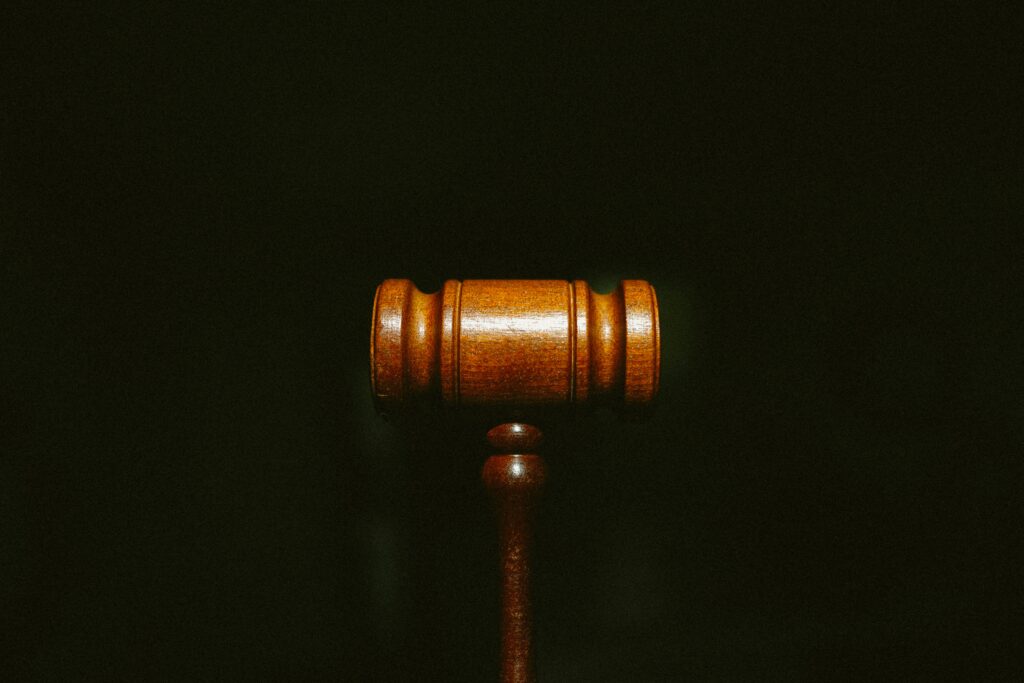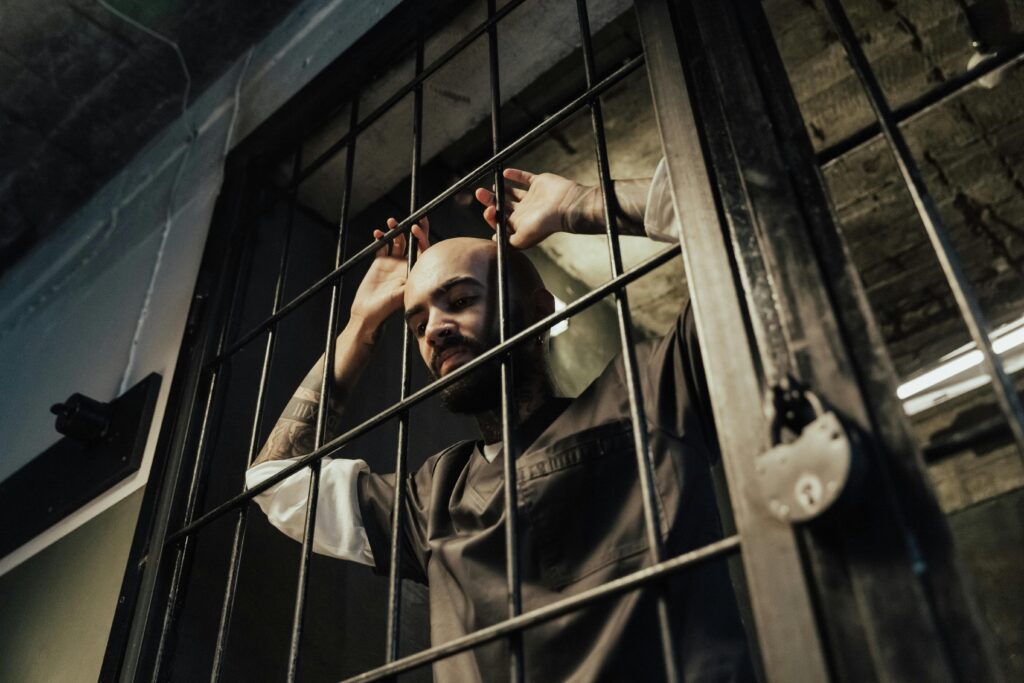Published on 15th June 2025
Authored By: Riya Dama
Jitendra Chauhan College of Law
|
CITATION
|
1996 AIR 1153 SCC 226 |
|
YEAR OF JUDGMENT |
January 12, 1996 |
|
PLAINTIFF |
DR. K.R. LAKSHMANAN |
|
RESPONDENT |
STATE OF TAMIL NADU AND ANR. |
|
STATUTES REFERRED IN THIS CASE |
Section 49-A Section 11 |
|
BENCH |
KULDIP SINGH HANSARIA B.L. MAJMUDAR S.B. |
INTRODUCTION
Gambling has long been an integral part of India’s cultural legacy. Its significant presence in folklore and traditions is clear; for instance, the dice game played between Lord Shiva and Goddess Parvati, the custom of playing cards during Deepawali, and the wager involving the Pandavas’ wife during a match in the Mahabharata. Today, gambling continues to play a vital role in society. The concept of ‘gambling’ can be understood in various ways depending on the situation, including actions like placing bets, participating in electronic gaming, or buying lottery tickets. However, the term ‘gaming’ is frequently adopted as a more culturally acceptable way to refer to gambling. The legal landscape related to gaming and betting is complex and continuously changing. The regulation of gambling initiated in 1867 with the Public Gambling Act 18671 (PGA), which aimed to introduce penalties for public gambling and regulate the venues where gambling occurs, particularly in regions such as the United Provinces, East Punjab, Delhi, and the Central Provinces. To assess whether a game qualifies as gambling, one must look at whether it is primarily driven by skill or chance. The Supreme Court clarified this distinction in the case of Dr. K.B. Laksh.
FACTS OF THE CASE
The Madras Race Club (the club) is an association registered as a limited liability company under the Companies Act of 1956. As stated in its Memorandum and Articles of Association, the main objective of the club is to engage in the business of conducting horse racing events. The club organizes race meetings at its racetrack in Madras and Uthagamandalam (Ooty), where betting occurs on the premises of the racecourse. While horse racing continues in other parts of the country, the Tamil Nadu Legislature enacted a law as early as 1949 that classified horse racing as a form of “gaming.” However, this law was not implemented until 1975, when the club contested it through a writ petition in the Madras High Court. The High Court dismissed the writ petition. The current proceedings are a result of a long history of legal disputes between the parties that have spanned over two decades. A separate entrance fee is charged for both the first and second enclosures. Approximately one and a half times the entrance fee is allocated as entertainment tax to the Commercial Tax Department of the State Government, while the remaining portion is retained by the club. Wagers on the competing horses can be placed at the club’s totalizators (totes) by purchasing tickets for Rs.5/- or with the licensed bookmakers (Bookies) who operate within the first enclosure.
ISSUE RAISED
- Whether the operation of horse races by the club considered a game of “chance” or a game of “pure skill”?
- Whether the act of wagering or betting on horse races classified as “gaming” according to the definitions found in the Police Act and the Gaming Act?
- Whether horse racing is deemed a game of “pure skill,” is it still prohibited under Section 49-A of the Police Act and Section 4 of the Gaming Act?
- Whether the Madras Race Club (Acquisition and Transfer of Undertaking) Act, 1986 (the 1986 Act) implement the policy outlined in Article 39(b) and (c) of the Constitution of India (the Constitution), thereby being safeguarded under Article 31(c) of the Constitution, If not, is the 1986 Act subject to being invalidated for violating Articles 14 and 19(1)(g) of the Constitution.
PETITIONERS’ ARGUMENT
Prize competitions that were part of the second section of the qualifying clause, specifically those determined by chance, were fundamentally a type of gambling. It has also been recognized that the third category, which encompassed “any other competition whose success does not heavily depend on the use of skill,” was viewed as a gambling competition. In the past, it was understood that for a competition to be considered gambling, it needed to be one where success was based solely on luck. If even a minor amount of skill was required to achieve success, the competition could not be deemed as gambling.
RESPONDENT’S ARGUMENT
Mr. Ashok Desai, the learned attorney representing the State of Tamil Nadu, argued regarding “handicap horse races.” The term `gaming’ in the two statutes must be interpreted based on the principles established by this Court in the two Chamarbaugwala cases, where it was conclusively determined that a contest significantly reliant on skill should not be classified as gambling. Gaming refers to the act or practice of wagering on a game determined by chance. It involves betting on the outcome of chance where luck is the predominant element. Therefore, `gaming’ as defined in the two statutes would pertain to wagering or betting on games of chance. It would exclude skill-based activities such as horse racing. Furthermore, Section 49 of the Police Act and Section 11 of the Gaming Act specifically exempt games that rely solely on skill from the punitive measures of these statutes. Consequently, we conclude that betting or wagering on horse racing – a skilled activity – does not fall under the definition of `gaming’ in the two acts. Mr. Parasaran has referenced the ruling from the House of Lords in Attorney General vs. Luncheon and Sports Club, Limited 1929 AC 400, as well as the decision from the Court of Appeal in Tote Investors, Ltd. vs. Smoker 1967 (3) A.E.R. 242, to support the argument that apart from Section 49 of the Police Act and Section 11 of the Gaming Act, there is no `wagering’ or `betting’ between a punter and the club. According to his perspective, a bettor places bets with either the totalizator or the bookmaker, and not directly with the club. The objectives and rationales statement indicates that the Madras City Police Act of 1888 and the Madras Gaming Act of 1980 impose penalties for opening, maintaining, or managing any common gaming house, as well as for participating in gaming within one. A particular issue has surfaced in the City of Madras, where gambling in public spaces concerning the prices of New York Cotton, bullion, and the registration numbers of motor vehicles has become increasingly prevalent. Next, we need to address question five. The 1955 Act amended Sections 49A of the Police Act and Section 4 of the Gaming Act by replacing the original provisions with new ones. These two Sections have been in effect since 1955. Additionally, it is considered beneficial to align the wording regarding gaming in the City Police Act with that found in the Gaming Act, as well as to merge the sections concerning horse racing and other forms of gaming, which are currently treated separately in each Act.
ANALYSIS
Gambling can be defined as the act of giving a specific amount of money for a chance to receive a reward. Games can either be based on luck, skill, or a combination of both. A game of chance is one where the outcome is entirely or partially determined by randomness or luck. Examples of chance-based games include rolling dice, spinning wheels, and shuffling playing cards. The results of these games are completely uncertain and unpredictable. It is difficult for us to accept that gambling was ever meant to be part of this ancient country’s trade, commerce, or transactions, which are intended to be free under Article 301. In examining this case, our goal is not to establish a complete definition of the term, but rather, this Court, in the two Chamarbaugwala cases, has determined that gambling does not constitute trade and is therefore not protected by Article 19(1)(g) of the Constitution. Section 49 of the Police Act and Section 11 of the Gaming Act explicitly state that the penal provisions of these two Acts do not apply to “games of mere skill, regardless of where they are played.” The phrase “game of mere skill” has been understood by this Court to signify a game that is predominantly and primarily based on skill. In the case of State of Andhra Pradesh vs. K. Satyanarayana & Ors. (1968) 2 SCR 387, the Court was tasked with determining whether the game of Rummy qualifies as a game of mere skill or a game of chance. This issue required interpreting Section 14 of the Hyderabad Gambling Act (2 of 1305 F), which is analogous to Section 49 of the Police Act and Section 11 of the Gaming Act. With Article 31-C no longer in effect, Articles 14 and 19 of the Constitution now apply. Mr. Prasaran has strongly argued that while it may be acceptable for the legislature to differentiate a single company that possesses genuine and significant characteristics that set it apart from other similarly positioned companies, if there is no reasonable basis for such classification evident from the legislation itself or inferred from the contextual circumstances, then the legislation would violate Article 14 of the Constitution.
JUDGMENT
It is evident from the previous remarks that the actions that have been disapproved in this country since ancient times appear to have also been discouraged and viewed unfavorably. We find it hard to accept the argument that those activities, which foster a reckless desire for quick profits through chance and ultimately disturb the peace and happiness of a modest household, could have been meant by the framers of our Constitution to be elevated to the level of trade, commerce, or activities and to be included as the subject of a fundamental right protected by Article 19 (1) (g). The club uses its financial resources to distribute prize money (stake money) to the horses that win. Prizes are awarded to horses finishing in the first, second, third, and fifth or sixth positions by the club. The club generates income through entrance fees, a 5% commission received from the bookmakers and totalizators, entry fees paid by horse owners for participating in the race, and license fees collected from bookmakers. Horse racing serves as an organized institution. Beyond being a sport, it has evolved into a significant public entertainment industry. We conclude that Act No. 199, Pub. Acts 1933, which permits pari-mutuel betting on horse races, does not infringe upon the constitutional ban on lotteries.” We confidently conclude that horse racing is a sport that mainly relies on special skills obtained through training. The key factors are the horse’s speed and endurance, developed through training. It has been brought to the government’s attention that bookmakers retain substantial amounts of betting records, leading to significant revenue losses for the government; whereas the Government believes that the management of the Madras Race Club is inadequate and that the interests of the public attending the races have been adversely affected. The amount that has been assessed regarding the value of the assets acquired by the Government is not owed to the club but must be paid to the Commissioner appointed under Section 14 instead. The 1986 Act contains detailed regulations for the distribution of the amount owed among the club’s creditors. The Act establishes its order of priority among the creditors, and only what is left with the commissioner after all payments have been made is allocated to the club.
CONCLUSION
The key question to be addressed is whether a horse race held on the club’s turf constitutes a game of “chance” or one of “pure skill.” Consequently, it was ordered that the Management Committee, chaired by Justice S. Natarajan and appointed by this Court, must transfer the management, functioning, and operation of the club to an appropriately established Management Committee, as per the club’s Memorandum and Articles of Association, by March 31, 1996. The parties involved shall bear their expenses. The judgment delivered by the Supreme Court in the matter of Dr. K.R Lakshmanan v. State Of T.N signifies a crucial enhancement in India’s gambling laws while it also emphasises the difference between skill-based games and those based on chance. By recognizing horse racing as an activity reliant on skill, the Court not only protected that it is a traditional and economically endeavor and at the same time it upholds the constitutional principle that opposes arbitrary legislation. This ruling serves as a light of hope for forthcoming legal interpretations and legislative measures in the fields of gaming and sports, ensuring that regulations align with societal values as well as constitutional ideals.
REFERENCES



